Search
Remove Ads
Advertisement
Search Results
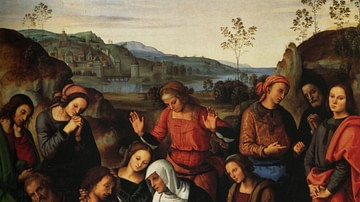
Definition
Joseph of Arimathea
Joseph of Arimathea was a follower of Jesus of Nazareth who buried him in his own tomb after the crucifixion. In the gospels, Mark and Luke identified him as a member of the Sanhedrin, the Jewish Council in Jerusalem. The location of Arimathea...
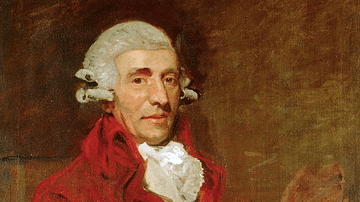
Definition
Joseph Haydn
Joseph Haydn (1732-1809) was an Austrian composer of Classical music who is widely regarded as one of the greatest composers in history. Haydn spent most of his career around Vienna, where he pioneered the symphony and string quartet format...
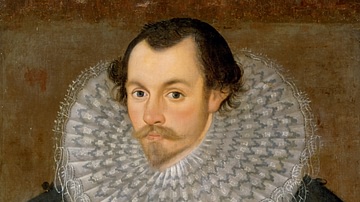
Definition
Martin Frobisher
Sir Martin Frobisher (c. 1535-1594 CE) was an Elizabethan adventurer and explorer who embarked on three expeditions in the 1570s CE to chart the waters of the North American Arctic and find the Northwest Passage to Asia. Unsuccessful in these...
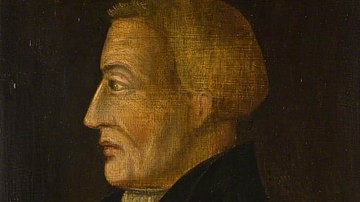
Definition
Martin Bucer
Martin Bucer (l. 1491-1551) was a German reformer and theologian who had been a Dominican friar and priest until converted to the Protestant vision by Martin Luther (l. 1483-1546) c. 1518. Bucer is best known for his focus on unity among...
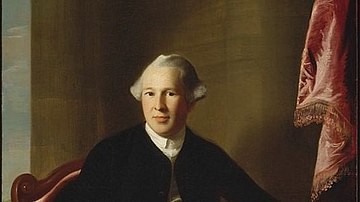
Definition
Joseph Warren
Doctor Joseph Warren (1741-1775) was a physician from Boston, Massachusetts, who became an important political leader of the Patriot movement during the early years of the American Revolution (c. 1765-1789). Known for dispatching Paul Revere...
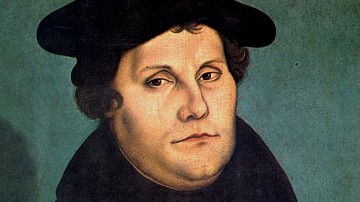
Definition
Martin Luther
Martin Luther (l. 1483-1546) was a German priest, monk, and theologian who became the central figure of the religious and cultural movement known as the Protestant Reformation. Even though earlier reformers had expressed Luther's views, his...
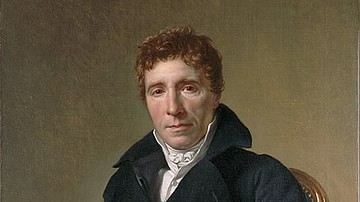
Definition
Emmanuel-Joseph Sieyès
Emmanuel-Joseph Sieyès (1748-1836), commonly known as Abbé Sieyès, was a French clergyman and political writer, who became a leading voice in the Third Estate during the French Revolution (1789-99). Sieyès played instrumental roles in both...
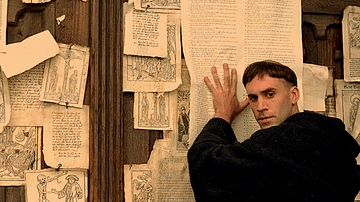
Article
Martin Luther's 95 Theses
Martin Luther's 95 Theses of 31 October 1517, although they have since come to represent the beginning of the Protestant Reformation, were not written to challenge the authority of the Roman Catholic Church but were simply an invitation to...
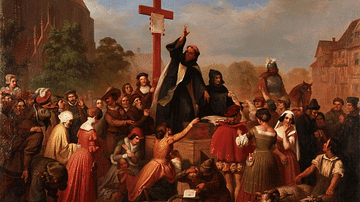
Article
Medieval Indulgence & Martin Luther
The medieval indulgence was a writ offered by the Church, for money, guaranteeing the remission of sin, and its abuse was the spark that inspired Martin Luther's 95 Theses. Luther (l. 1483-1546) claimed the sale of indulgences was unbiblical...
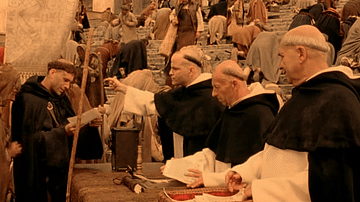
Article
1521 Excommunication of Luther: Complete Text
In response to Martin Luther's 95 Theses, as well as his other works, Pope Leo X sent a papal bull threatening him with excommunication in June 1520. Luther publicly burned the bull at Wittenberg on 10 December 1520 and was officially excommunicated...